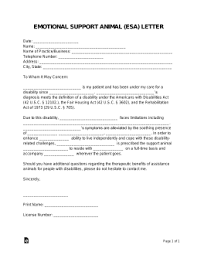Knowing the causes of vertigo is vital for anyone who has felt its disorienting effects. This condition, often described as a feeling of spinning or dizziness, can significantly impact daily life. In this blog post we’ll examine the most common Vertigo causes providing valuable insight to help you better comprehend this common ailment.
Defining Vertigo and Its Symptoms
Before we discuss the causes first, we must understand what vertigo involves. Unlike general dizziness, vertigo is a specific type of feeling wherein you or your surroundings seem to spin or move. It’s worth noting that vertigo itself isn’t a disease but rather a symptom or a sign of a underlying problem. It is a common symptom that includes nausea, vomiting, and balance issues, which can be alarming and disrupting.
Common Causes of Vertigo
One of the primary causes of causes of vertigo is Benign Paroxysmal Positional Vertigo (BPPV). The condition develops when microscopic calcium crystals, referred to as canaliths, get dislodged and move into the inner ear canals. The inner ear plays a vital role in maintaining balance. When the particles interfere with its regular function vertigo can occur. BPPV is often short-lived but can be alarming when it occurs.
A different cause of Meniere’s disease, a disorder of the inner ear which leads to episodes of vertigo, along with hearing loss and tinnitus. The cause is a buildup of fluid in the inner ear, affecting equilibrium and the hearing signal. The exact cause of Meniere’s Disease remains unclear, factors like allergies, infections, or genetic predispositions may be responsible for.
Vestibular neuritis, a condition that causes inflammation of the vestibular nerve, is another cause worth noting. This nerve connects the inner ear with the brain, and if inflamed it can lead to vertigo. Unlike BPPV, vestibular neuritis often results in a sudden onset of severe vertigo that can be accompanied by nausea and a shaky walk.
Understanding Less Common Causes
Although less common, migraines are also associated with vertigo. Also known as vestibular migraines these types don’t always cause headaches, but can cause balance and dizziness. Stress, certain foods and hormonal changes can trigger these symptoms.
Lastly, it’s important to consider medical conditions such as stroke or multiple sclerosis, which may occasionally cause vertigo as an underlying symptom. Although they are rare, these severe ailments highlight the importance of seeking medical attention when vertigo happens suddenly or is associated with other concerning symptoms.
Taking Action Against Vertigo
Understanding what causes of vertigo is the first step in managing it effectively. When you are experiencing or if someone else you know has chronic or severe vertigo getting in touch with a healthcare professional is crucial. They can identify the underlying reason and recommend the appropriate treatment or therapies.
In the end, although vertigo can be distressing but knowing the causes and seeking prompt intervention can reduce its effects. It doesn’t matter if it’s caused by BPPV, Meniere’s Disease, or another condition, understanding vertigo allows you to manage the situation and get the assistance needed to lead living a healthy life.



